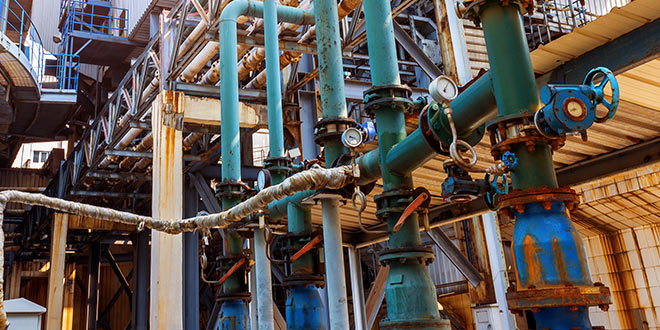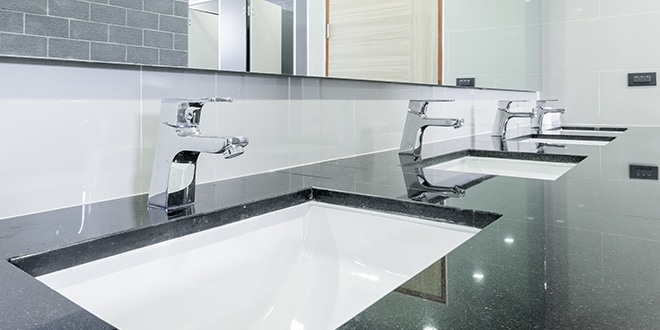
With winter in full swing, the last thing you want is for your pipes to freeze and burst. Not only is this a huge inconvenience, but it can also lead to expensive repairs. Fortunately, you can take some preventative measures to avoid frozen pipes. Here are a few tips from our experts at Precision Plumbing.
Insulate exposed pipes:

Any pipes that are exposed to cold air should be adequately insulated. This includes pipes in your attic, crawlspace, or unheated home areas. You can purchase insulation materials at most hardware stores. Just measure the circumference of your pipe, so you get the right size.
If you have a pipe that bursts, it is essential to know how to shut off the water in your home. This will help prevent further damage. Most homes have a main water shutoff valve near the water meter. You should contact your local utility company for assistance if you cannot find it.
And if you live in an area prone to freezing temperatures, it is essential to take steps to prevent your pipes from freezing. One way to do this is to keep your thermostat set to at least 55 degrees. You should also open cabinet doors and allow heat from your home’s heating system to reach the pipes.
Keep cabinet doors open:
Keep the doors to your kitchen and bathroom cabinets open during cold weather. This will allow warm air to circulate and prevent ice formation on the pipes.
If your pipes freeze, turn on the faucet closest to the frozen pipe. This will help thaw the pipe and relieve pressure. Do not use a blow torch or other open flame to thaw your pipes, as this could cause a fire.
If you have a pipe that bursts, turn off the water at the main shut-off valve and call a plumber to repair the damage. Burst pipes can cause severe water damage in your home, so it is essential to take action quickly.
Preventing frozen pipes is the best way to avoid costly repairs or water damage in your home. You can keep your pipes flowing freely all winter long.
Let faucets drip overnight:
A slow drip from your faucets overnight can help prevent your pipes from freezing. The moving water will help keep them from freezing solid.
If you have no running water and your pipes have frozen, there are a few things you can do to try to thaw them out. First, turn on any faucets in your home so that as the ice melts, the water has somewhere to go. You can also use a hair dryer or heat lamp to heat the pipes slowly. Never use an open flame to thaw out your pipes, as this can cause them to burst. Finally, if you can’t seem to get your pipes thawed, you may need to call a plumber for assistance.
And if you’re worried about your pipes freezing in the first place, there are some things you can do to prevent it. First, make sure your home is well-insulated, especially any exposed pipes. You can also let a little water drip from your faucets overnight to keep the water moving and help prevent freezing. Finally, if you’re going to be away from home for an extended period, make sure to shut off the water in your home and drain all the pipes to prevent them from freezing.
Turn up the heat:
Perhaps the easiest way to prevent frozen pipes is to keep your home warm enough simply. Set your thermostat to at least 55 degrees Fahrenheit during cold weather snaps. If you’re going away for an extended period, consider turning up the heat even higher or shutting off the water entirely and draining your system (but don’t forget to relight any pilot lights when you turn the gas back on!)
Another way to help prevent your pipes from freezing is to insulate them. You can purchase pre-slit pipe foam insulation at any hardware store, which is relatively cheap and easy to install. Simply cut the foam to size, wrap it around your pipes, and secure it in place with duct tape.
If you do end up with frozen pipes, don’t panic. Start by turning off the water to your home at the main shut-off valve. Then, use a hair dryer or a space heater (set on low) to thaw the ice in the pipes. Never use an open flame to thaw your pipes, as this could create a fire hazard. Once the ice is melted, turn the water back on and check for leaks
Winterize outdoor faucets and irrigation systems:

Don’t forget about any outdoor faucets or sprinkler systems! These should be appropriately winterized before the first frost hits to prevent any issues with freezing or bursting pipes.
If you have any outdoor faucets or sprinkler systems, don’t forget to winterize them before the first frost hits. This will help prevent any issues with freezing or bursting pipes.
To winterize your outdoor faucets, remove any hoses or attachments and store them indoors. Then, open up the outdoor faucet and allow any remaining water to drain out. Once the water has drained, close the outdoor tap to prevent further water from entering.
For sprinkler systems, you’ll need to shut off the water at the main valve and then drain the system by opening up each sprinkler head. Once the water has drained, close each sprinkler head, and you’re all set!
Conclusion:
You can help prevent frozen pipes this winter by taking a few simple precautions. Just be sure to insulate exposed pipes, keep cabinet doors open, and let your faucets drip overnight during especially cold weather snaps. You should also turn up the heat in your home (or shut off the water entirely if you’re going away for an extended period) and winterize any outdoor faucets or sprinkler systems before the first frost hits!
Precision Plumbing is your go-to Calgary plumber for all your plumbing needs, big or small. Contact us today for a free consultation!




